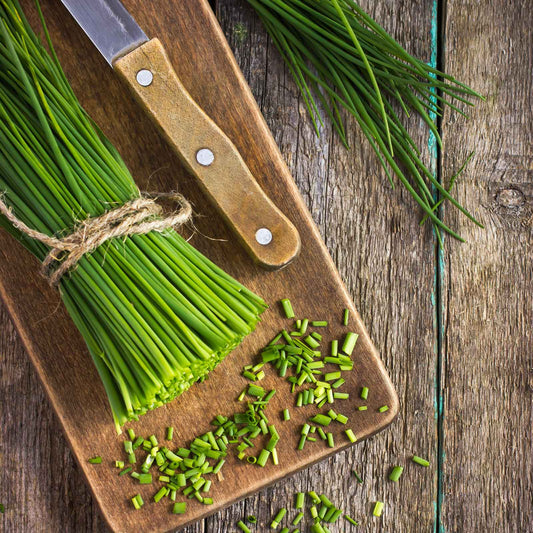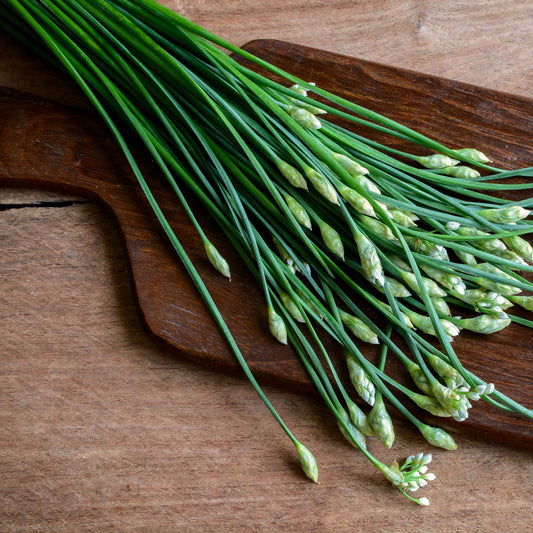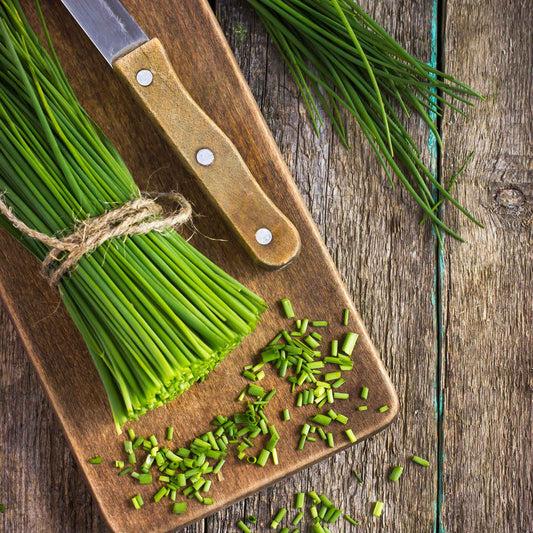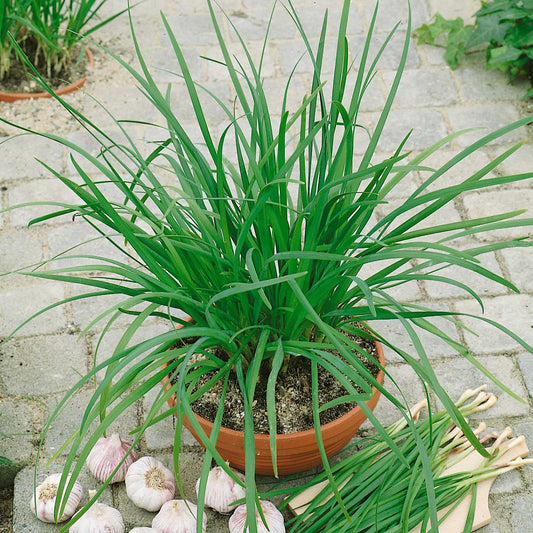-
main-collection-product-grid

Chives Seeds (Common)
Versatile, tasty, potato topping sun loverChives Seeds (Common)
Versatile, tasty, potato topping sun loverRegular price As Low As $4.99Regular priceUnit price per -
main-collection-product-grid

Chives Seeds - Garlic
Same wonderful chives with a garlic undertoneChives Seeds - Garlic
Same wonderful chives with a garlic undertoneRegular price As Low As $4.99Regular priceUnit price per -
main-collection-product-grid

Chives Seeds (Organic)
Easy to grow; sun loving addition to potatoes, eggs, and cream cheeseChives Seeds (Organic)
Easy to grow; sun loving addition to potatoes, eggs, and cream cheeseRegular price As Low As $7.99Regular priceUnit price per -
main-collection-product-grid

Garlic Chives Seeds (Organic)
Give a garlic kick wherever chives is usedGarlic Chives Seeds (Organic)
Give a garlic kick wherever chives is usedRegular price $7.99Regular priceUnit price per
Planting the best chives seeds
- Thrives in bright, sunny areas
- Perennial herb that can be planted indoors or outdoors
- Versatile and tasty
- Offers an onion-like taste, much more mild than regular red or yellow onions
Grow chives in containers or in the garden
Growing well in containers and beds, chives make a wonderful addition to both your herb and flower garden. This herb is native to the Balkans, an area that includes Turkey, Greece, Bulgaria, and parts of southwestern Russia. Chives require very little care beyond water and a good, sunny location, indoors or outdoors. As a perennial, they will come back each spring and in three to four years you may even need to divide the clumps and give them to friends or continue to plant in other parts of your garden.
How to sow chive seeds and when to start thinning the plants
Wait until the threat of frost has passed if sowing chive seeds outdoors. Choose fertile, loamy soil, being careful not to over-fertilize, as this can result in chives with a more mild flavor. Chives perform best in soil with temperatures of 60 to 70°F. Plant in rows with groups of seeds about every four inches, or scatter your seeds onto the surface of the soil and compress. Don't cover seeds with soil, as they require direct sunlight to germinate. Sprouts will start to form in about 10 to 14 days. Once plants are two inches tall, thin to one plant every four inches.
Eat chives for great nutritional benefits and delicious taste
Once chives are about 12 inches tall, simply snip off what you need. You can cut chives down to about half their height without causing any harm. If your chive plant starts to flower, the flowers can be eaten as well!
Chives are an excellent source of calcium, iron, phosphorous, sulfur, potassium, vitamin A, and vitamin C. These vitamins help in blood count increase, maintaining blood pressure, and increasing immunity power. Additionally, chives contain choline and folate which are both linked to improving memory functions.
The culinary uses of chives are endless! Add chives to stocks, soups, salads, potato dishes, quiches, eggs, and even olive oils. However you choose to enjoy your home-grown chives, be sure to add them at the end of your meal preparation, as chives lose their flavor when heated.
For more information about planting, growing, and caring for chives seed, see the Chives Seeds Planting Guide.



